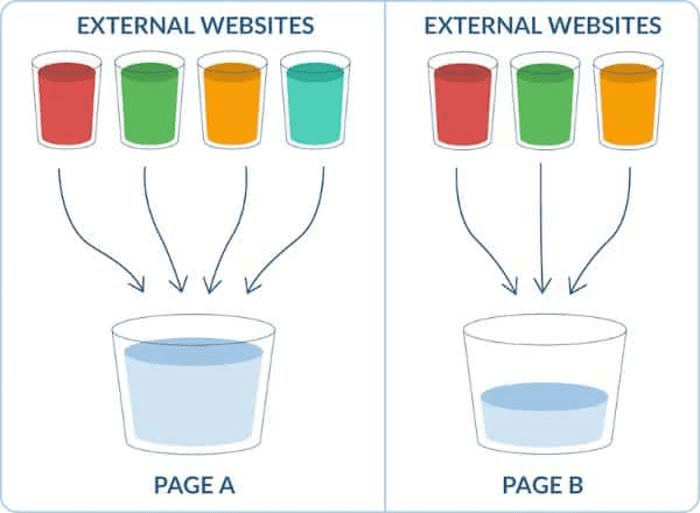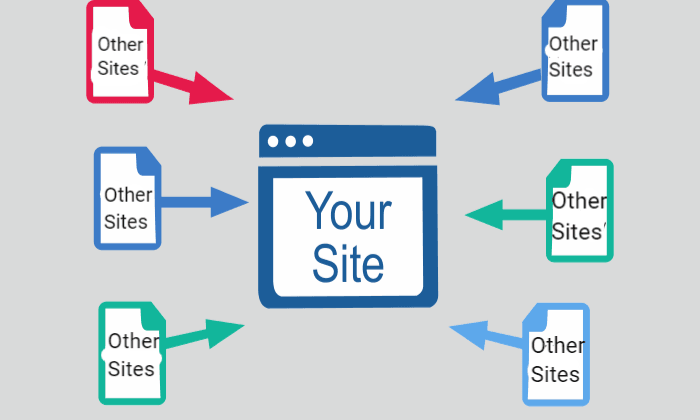Quick Summary
This guide explains how to find keywords on any website using tools like Keyword Metrics and various techniques. It covers essential methods such as competitor keyword analysis, long-tail keyword discovery, and keyword density optimization. The article highlights the importance of keyword research for boosting search engine visibility and driving targeted traffic. By following these steps, businesses can enhance their SEO strategies and improve search rankings efficiently.
Looking to Learn More About Keyword Analysis?
Are you seeking a better way to improve your website’s SEO? Keyword analysis can uncover valuable insights, boost rankings, and drive more organic traffic. In this article, we’ll explain how keyword analysis works, why it’s essential for SEO, and how Keyword Metrics can simplify the process.
What is Keyword Analysis?
Keyword analysis is the process of evaluating the effectiveness and relevance of keywords used on your site. This includes:
Identifying high-performing keywords.
Optimizing underperforming keywords.
Aligning keywords with your SEO goals.
By understanding which keywords drive traffic, businesses can improve search engine visibility and better target their audience. The key components of keyword analysis include:
Ensuring keywords appear naturally throughout the content without overstuffing.
Finding related terms or synonyms to broaden content reach.
Analyzing competitor keywords to refine your strategy.
Targeting specific, less competitive keywords to capture niche audiences.
Why Is Keyword Research Important?
Keyword research is essential for creating content that ranks well in search engines. It helps businesses find terms that their target audience searches for, ensuring content aligns with what users need.
Key Benefits:
Target the right keywords to rank higher on search engines and make it easier for customers to find you.
Use long-tail keywords to drive highly relevant traffic, increasing engagement and conversion rates.
Analyze competitor keywords to find opportunities and outrank them in search results.
Researching keywords helps you target the right titles, meta descriptions, and on-page content.
Tracking keyword trends ensures that your content remains relevant and SEO-friendly.
How to Do Keyword Research
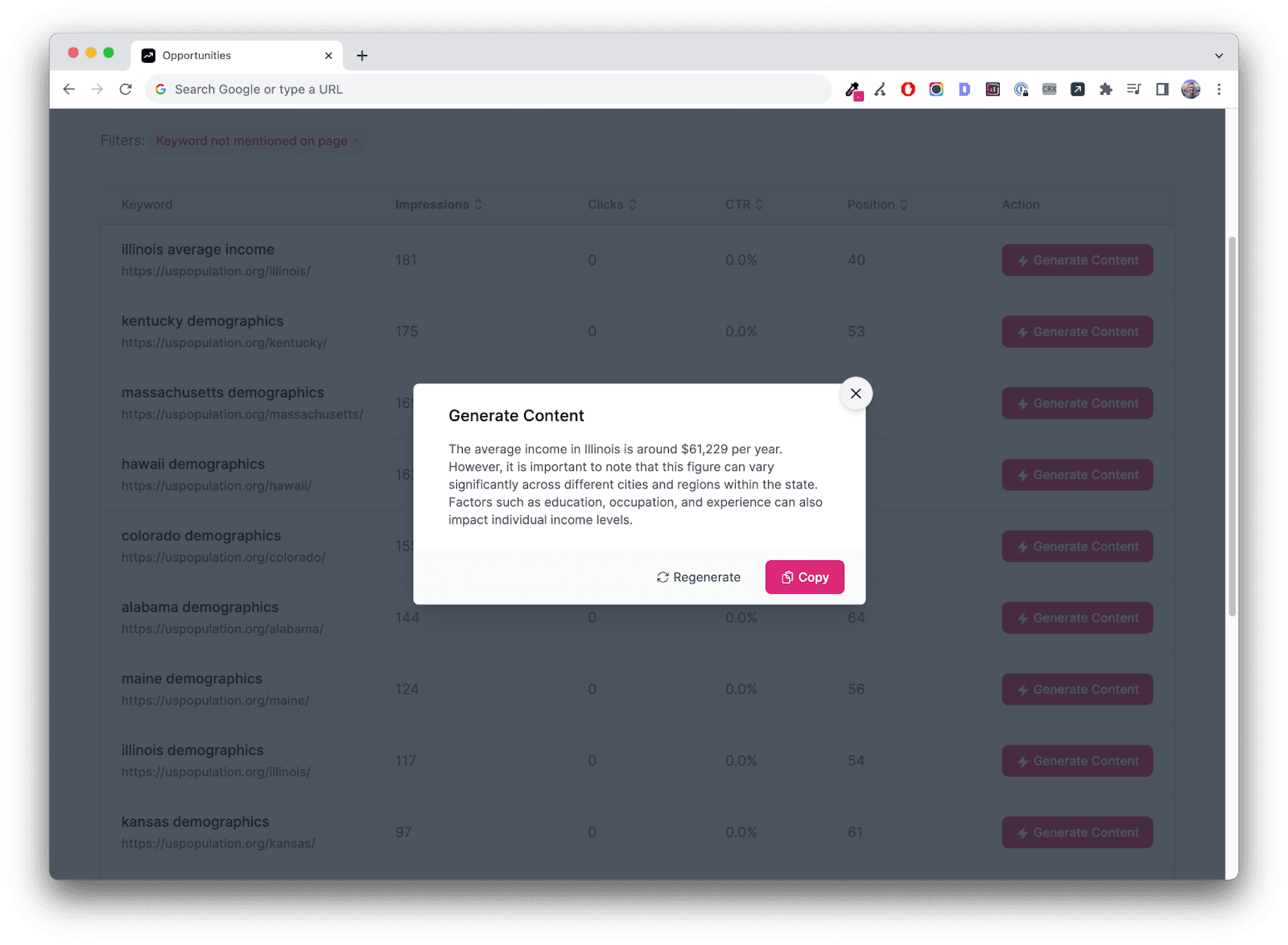
Effective keyword research is essential for building a strong SEO strategy. By identifying the right keywords, you can drive targeted traffic and improve your website’s visibility in search engines. Here’s a step-by-step guide to help you master keyword research:
1. Define Your SEO Goals
Before you start researching keywords, clarify what you want to achieve. Are you aiming to increase traffic, boost conversions, or expand into new markets? Your goals will guide which keywords to focus on and how to optimize your content.
2. Brainstorm Initial Keywords
List the primary terms related to your products, services, or content. These are the starting point for identifying on-page SEO keywords and expanding into more specific terms like long-tail keywords.
3. Use Keyword Research Tools
Leverage tools like Keyword Metrics to find relevant keywords. These tools provide insights into search volume, competition levels, and related keywords. You can even explore long-tail keywords and discover opportunities based on real-time data.
4. Analyze Competitor Keywords
Check what keywords your competitors are ranking for by reviewing their content, title tags, and meta descriptions. Competitor insights help you refine your own strategy and target untapped keyword opportunities.
5. Focus on Long-Tail Keywords
Long-tail keywords are more specific, often less competitive, and typically reflect higher user intent. These phrases can drive highly targeted traffic and boost your conversions.
6. Check Keyword Difficulty and Trends
Evaluate the difficulty of ranking for certain keywords and keep track of keyword trends to ensure your SEO efforts stay relevant. Tools like Keyword Metrics make it easy to monitor these factors in real-time.
7. Map Your Keywords
Organize your chosen keywords into a clear keyword mapping strategy, assigning them to specific pages on your website. This ensures each page is optimized for the right terms.
8. Optimize for Keyword Variations
Incorporate related terms or synonyms into your content to capture a broader audience. This helps your SEO efforts without overstuffing keywords into your pages.
By following these steps, you’ll be able to conduct efficient keyword research and enhance your SEO strategy.
Optimize your SEO strategy effortlessly by using Keyword Metrics to discover relevant keywords, analyze competitors, and track real-time trends. Get started with Keyword Metrics today and take your SEO to the next level!
Best Practices for Keyword Research
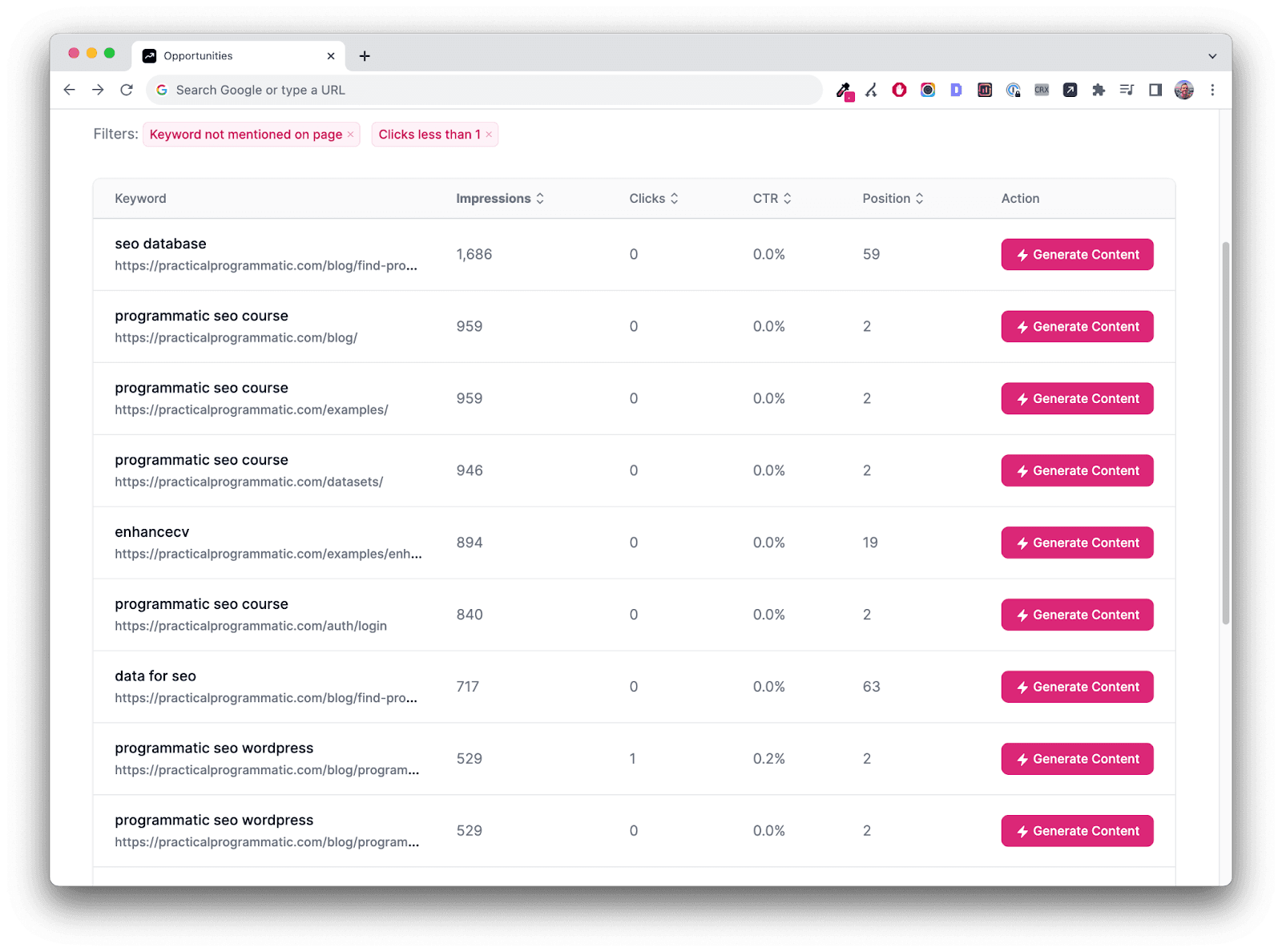
Implementing the right keyword research practices can significantly improve your website’s SEO and bring in high-quality traffic. Here are some best practices to follow for effective keyword research:
1. Focus on User Intent
When choosing keywords, always consider the user’s search intent. Are they looking for information, comparing products, or ready to buy? Targeting keywords that match user intent ensures your content is relevant, leading to higher engagement and conversions.
2. Balance Short-Tail and Long-Tail Keywords
Short-tail keywords (one to two words) have higher search volumes but are often highly competitive. Incorporating long-tail keywords (three or more words) helps target specific queries and attract niche audiences, often leading to higher conversions with less competition.
3. Analyze Keyword Difficulty
Before committing to keywords, assess their difficulty. This metric gives insight into how hard it will be to rank for certain terms. A good strategy is to mix high-difficulty keywords with low-competition keywords to improve ranking opportunities.
4. Use Competitor Insights
Analyzing the keywords your competitors are ranking for can uncover gaps in your SEO strategy. This data helps you identify new opportunities and stay ahead of the competition.
5. Incorporate Keyword Variations
Avoid focusing solely on a single keyword. Use variations, synonyms, and related terms to capture a broader audience. This strategy also helps avoid keyword stuffing and improves your content's readability.
6. Map Keywords to Pages
Develop a keyword mapping strategy by assigning specific keywords or keyword groups to individual pages on your website. This ensures each page is optimized for its target keywords, helping avoid overlap or dilution.
7. Monitor Keyword Trends
Search behavior evolves, and keyword performance can fluctuate. Regularly monitor keyword trends and adjust your SEO strategy to stay relevant. Using tools like Keyword Metrics makes it easy to track trends and keep your content optimized.
8. Optimize On-Page SEO
Ensure your target keywords are included in important areas of your webpage, such as title tags, meta descriptions, headers, and throughout the content. Maintain balanced keyword density, avoiding overstuffing, which can harm SEO rankings.
9. Leverage Internal Search Data
Your website’s internal search data can reveal valuable keywords that visitors are searching for. Incorporating these terms into your content can improve both SEO and the user experience.
10. Regularly Update Your Keyword Strategy
SEO is an ongoing process. Regularly review and update your keyword strategy to keep up with changes in search engine algorithms and user behavior. Tools like Keyword Metrics can help you stay ahead by providing real-time keyword insights and performance metrics.
Streamline your SEO efforts by using Keyword Metrics to track keyword performance, analyze competitors, and monitor real-time trends. Start optimizing your keyword strategy today with Keyword Metrics!
Keyword Metrics: Your Essential SEO Tool for Keyword Research
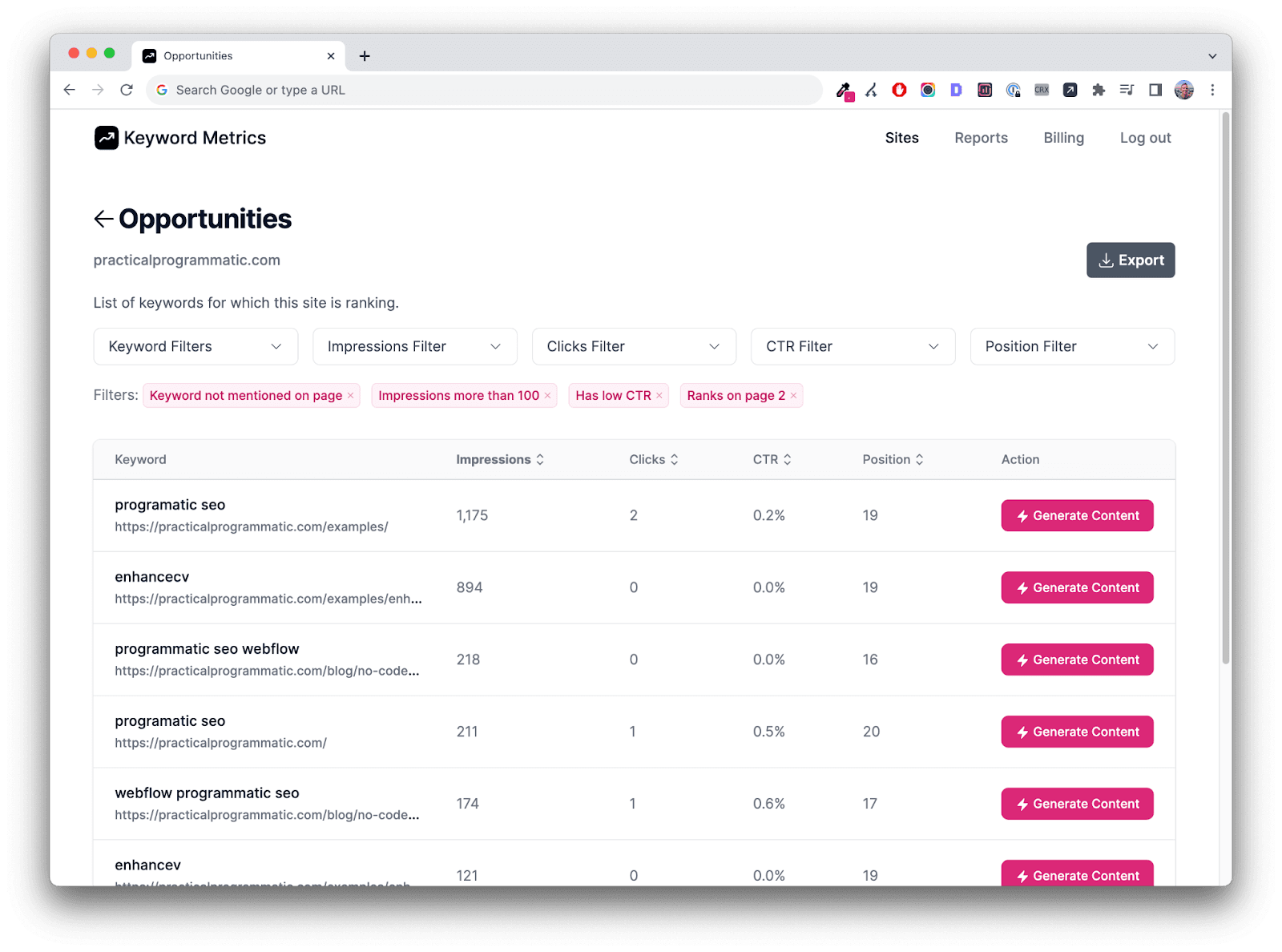
Keyword Metrics is an advanced SEO platform designed to simplify and enhance keyword research for businesses. Whether you're an SEO expert or just starting, Keyword Metrics provides the tools, insights, and analytics needed to make informed decisions and improve your website's visibility. It caters to all aspects of keyword research, from finding the right keywords to tracking performance and analyzing competitors.
How Keyword Metrics Helps in Keyword Research
Here’s how Keyword Metrics can streamline your keyword research and boost your SEO efforts:
1. Discover High-Performing Keywords
Keyword Metrics offers powerful keyword discovery tools that provide in-depth insights into search volume, keyword difficulty, and competition. By analyzing these factors, you can easily identify the most relevant and high-performing keywords for your content.
2. Long-Tail Keyword Suggestions
Long-tail keywords are essential for attracting niche audiences and achieving higher conversion rates. With Keyword Metrics, you can explore a wide range of long-tail keyword suggestions tailored to your industry. This ensures you target specific, intent-driven queries that drive quality traffic.
3. Competitor Keyword Analysis
Understanding what your competitors are doing is crucial for staying ahead in the SEO game. Keyword Metrics allows you to analyze competitor keyword strategies, uncover gaps in your own SEO efforts, and find opportunities to rank for keywords that your competitors are missing.
4. Real-Time Keyword Trends Tracking
Search behavior constantly changes, and so do keyword trends. Keyword Metrics keeps you updated with real-time keyword trends, ensuring your content remains relevant and aligned with current search patterns. This feature allows you to adjust your keyword strategy based on the latest search trends, keeping your SEO fresh and competitive.
5. Keyword Difficulty Assessment
Not all keywords are worth pursuing. Some have high competition and low conversion potential. Keyword Metrics provides an easy-to-understand keyword difficulty score, helping you focus on keywords that are both achievable and valuable for your business. This ensures you spend time on keywords that can realistically improve your rankings.
6. Keyword Mapping and Organization
With Keyword Metrics, you can map your keywords to specific pages on your website, ensuring that your content is optimized for the right search terms. This organization helps you avoid keyword overlap and ensures that each page targets a distinct keyword or group of keywords, improving your overall SEO performance.
7. On-Page SEO Insights
Keyword Metrics doesn’t stop at keyword discovery. It also provides on-page SEO insights, helping you optimize your title tags, meta descriptions, headers, and content to include the most effective keywords. This makes your site more attractive to search engines, improving your chances of ranking higher.
8. Monitor Keyword Performance
Once you've optimized your content, Keyword Metrics helps you monitor the performance of your keywords over time. You can track keyword rankings, see changes in search volume, and measure the impact of your SEO efforts. This feedback loop allows you to make data-driven decisions and refine your strategy for continuous improvement.
Whether you're looking to find new keyword opportunities, analyze competitors, or optimize your on-page SEO, Keyword Metrics provides all the tools and insights you need for successful keyword research. Simplify your SEO strategy, stay updated with the latest trends, and improve your website’s visibility with Keyword Metrics. Start optimizing your SEO today!
Optimize Your SEO with Keyword Metrics
SEO doesn’t have to be a guessing game. With Keyword Metrics, you can streamline the entire keyword research process using advanced tools that offer real-time insights into search trends, competition analysis, and keyword performance. Whether you're optimizing content, analyzing competitors, or tracking long-tail keywords, our platform helps you stay ahead in the SEO game. Start refining your SEO strategy today and let Keyword Metrics empower you to drive targeted traffic and boost your search rankings effortlessly.
Read our thoughts on the 5 Best SEO Rank Tracking Software for Agencies.

